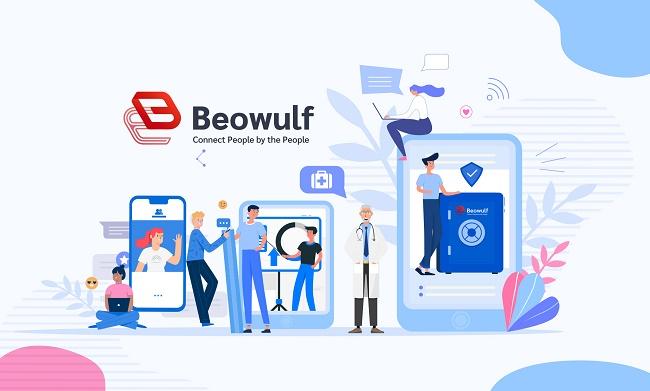The B2B telecommunications market is one of the most salient indicators of the progress in communications and commerce that the Internet has fueled, which is expected to surpass $100 billion globally by 2026. Communications technology is the undercurrent that has driven the acceleration of information in the digital age, and its development is at the core of popular trends in social media and online commerce.
However, some of the adverse collateral effects in communications technology have exposed themselves in recent years. For example, revelations like Facebook’s WhatsApp chats were not being encrypted end-to-end as claimed, the backdoor capabilities of work communication tools like Slack, and reports uncovering that Facebook grants third parties direct access to private Messenger chats, are just the tip of the dystopian iceberg.
Couple these transgressions against privacy with the historically high costs for businesses to tap third-party chat services or telecommunications infrastructure, and the advent of more secure, low-cost B2B communications becomes a clear necessity.
Fortunately, one of the collateral developments born from cryptocurrencies is an increased premium placed on privacy, and the innovation that comes with broader public demand for more secure and private communication networks. The deployment of blockchains has also uncovered some intriguing cases outside of just digital privacy, specifically, in making network infrastructure more reliable, accessible, and available at lower costs.
Applying Blockchains to Internet & Communications Infrastructure
Some of the developments in blockchain-oriented Internet technology involve revamping some of the Internet’s core protocols and routing mechanisms. Interestingly, blockchains appear as an ideal distributed medium for making communication and packet routing across the Internet more secure and efficient.
For example, NOIA Network blends segment routing, IPv6, and blockchains to bypass the BGP-level network congestion and hijacking that is endemic across Internet cloud infrastructure, becoming an abstract version of Waze but for more efficient packet routing. Additionally, companies like Marconi are restructuring one of the lower layers of the Internet’s OSI model, Ethernet, using blockchains to decentralize networks at the lower protocol layers, and making gateway points via major ISPs less centralized in the process.
What’s immediately noticeable with such designs is that blockchains provide the medium for other technologies, incentives, and privacy to co-exist and mutually benefit each other – as if they are a key component that the Internet has always needed to achieve its true potential.
Extrapolated to higher layers in the OSI model, such as cloud computing and telecommunications, blockchain-oriented solutions can have a profound impact on the growth of B2B commerce and communication.
One project, Beowulf, provides a promising glimpse of such a future for global enterprises of any size.
Beowulf & Redefining B2B Telecommunications
When surveying the B2B telecommunications landscape, it is prudent to take into account 3 primary areas that enterprises focus on: costs, performance, and privacy/security.
One of the major barriers currently hindering smaller businesses from engaging with third-party telecommunications providers is high costs and lack of customizability, which is essential for flexible online businesses today. Platforms like Slack and Discord provide viable options for businesses, but like the entire sector, are mired in some trade-offs that are often non-starters for enterprises.
For example, healthcare firms require the highest levels of security/privacy for walling off sensitive user health data along with performant communication rails. However, the combination of privacy/security and performance often comes at the expense of high costs, which leads to razor-thin operational cost for SMEs in the healthcare sector because privacy/security are non-negotiable components of any communications solution they select.
Add in the fact that quick, natively embedded integrations are increasingly in demand among businesses, and you can begin to see how more flexible communications products are gaining momentum, especially those that bypass the trade-off dilemma endemic in communications technologies.
Beowulf obfuscates conventional notions of communication barriers with a decentralized cloud network explicitly targeting customizable communications for businesses. Importantly, Beowulf furnishes a front-end SDK for in-house developers to customize their communications experience across mediums, and the network relies on AI to efficiently allocate routing pathways and resources across telecommunications infrastructure.
Additionally, the technology is end-to-end encrypted, something hard to come by in this age of digital surveillance, especially when apps like Slack are exposed to third parties. And, of course, they leverage the capabilities of blockchains to reduce costs and intermediate trust by operating network transactions and connection oversight. According to Beowulf, there is no upfront cost, and all communications-related charges are based on a pay-per-use model — with transparency furnished by the underlying blockchain for auditability.
Beowulf is subsequently able to circumvent the costly trade-offs of conventional B2B communications solutions. For developers, Beowulf is an ideal multi-operating platform product as well. Their SDK is compatible with both Android and iOS as well as multiple desktop platforms.
Their various business partnerships are an apt demonstration of the platform’s growing popularity. For example, some of their customers and partners include Gifto, Carbon Grid Protocol, world-renowned healthcare providers and universities, and a suite of others seeking customizable, deployment-ready communications products.
In a digital era where privacy and security are hard to come by, transaction and communication overhead preclude SMEs, and latency issues expose themselves among outdated routing protocols, the B2B communications sector is ripe for disruption. Beowulf is expanding on a growing industry targeting the convergence of blockchains and technologies that underscore the Internet, and in the process, is providing a unique glimpse into the advantages of a more secure and cost-effective B2B telecommunications sector.


























Comment 0